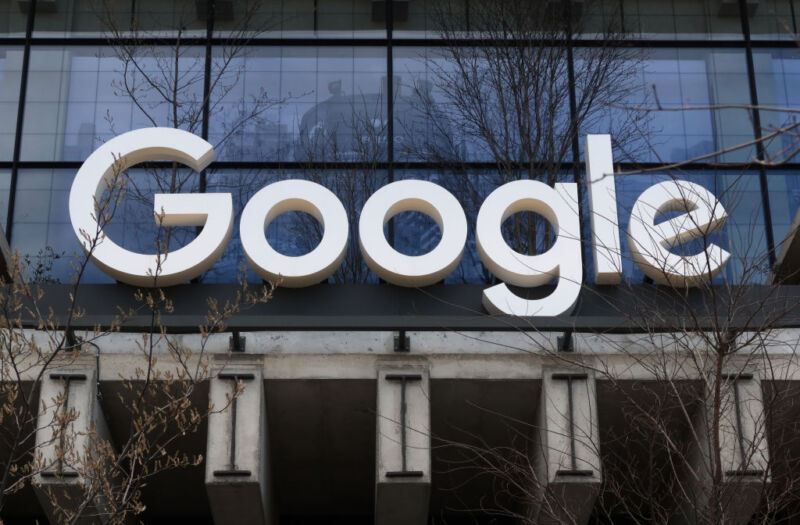Russia-based YouTubers, in particular, will likely lose significant revenues.

Google announced Monday that it’s shutting down all AdSense accounts in Russia due to “ongoing developments in Russia.”
This effectively ends Russian content creators’ ability to monetize their posts, including YouTube videos. The change impacts accounts monetizing content through AdSense, AdMob, and Ad Manager, the support page said.
While Google has declined requests to provide details on what prompted the change, it’s the latest escalation of Google’s ongoing battle with Russian officials working to control the narrative on Russia’s war with Ukraine.
In February 2022, Google paused monetization of all state-funded media in Russia, then temporarily paused all ads in the country the very next month. That March, Google paused the creation of new Russia-based AdSense accounts and blocked ads globally that originated from Russia. In March 2022, Google also paused monetization of any content exploiting, condoning, or dismissing Russia’s war with Ukraine. Seemingly as retaliation, Russia seized Google’s bank account, causing Google Russia to shut down in May 2022.
Since then, Google has “blocked more than 1,000 YouTube channels, including state-sponsored news, and over 5.5 million videos,” Reuters reported.
For Russian creators who have still found ways to monetize their content amid the chaos, Google’s decision to abruptly shut down AdSense accounts comes as “a serious blow to their income,” Bleeping Computer reported. Russia is second only to the US in terms of YouTube web traffic, Similarweb data shows, making it likely that Russia-based YouTubers earned “significant” revenues that will now be suddenly lost, Bleeping Computer reported.
Russia-based creators—including YouTubers, as well as bloggers and website owners—will receive their final payout this month, according to a message from Google to users reviewed by Reuters.
“Assuming you have no active payment holds and meet the minimum payment thresholds,” payments will be disbursed between August 21 and 26, Google’s message said.
Google’s spokesperson offered little clarification to Reuters and Bleeping Computer, saying only that “we will no longer be able to make payments to Russia-based AdSense accounts that have been able to continue monetizing traffic outside of Russia. As a result, we will be deactivating these accounts effective August 2024.”
Ars Video
What Happens to the Developers When AI Can Code? | Ars Frontiers
It seems likely, though, that Russia passing a law in March—banning advertising on websites, blogs, social networks, or any other online sources published by a “foreign agent,” as Reuters reported in February—perhaps influenced Google’s update. The law also prohibited foreign agents from placing ads on sites, and under the law, foreign agents could include anti-Kremlin politicians, activists, and media. With new authority, Russia may have further retaliated against Google, potentially forcing Google to give up the last bit of monetization available to Russia-based creators increasingly censored online.
State assembly member and Putin ally Vyacheslav Volodin said that the law was needed to stop financing “scoundrels” allegedly “killing our soldiers, officers, and civilians,” Reuters reported.
One Russian YouTuber with 11.4 million subscribers, Valentin Petukhov, suggested on Telegram that Google shut down AdSense because people had managed to “bypass payment blocks imposed by Western sanctions on Russian banks,” Bleeping Computer reported.
According to Petukhov, the wording in Google’s message to users was “kind of strange,” making it unclear what account holders should do next.
“Even though the income from monetization has fallen tenfold, it hasn’t disappeared completely,” Petukhov said.
YouTube still spotty in Russia
Google’s decision to end AdSense in Russia follows reports of a mass YouTube outage that Russian Internet monitoring service Sboi.rf reported is still impacting users today.
Officials in Russia claim that YouTube has been operating at slower speeds because Google stopped updating its equipment in the region after the invasion of Ukraine, Reuters reported.
This outage and the slower speeds led “subscribers of over 135 regional communication operators in Russia” to terminate “agreements with companies due to problems with the operation of YouTube and other Google services,” the Russian tech blog Habr reported.
As Google has tried to resist pressure from Russian lawmakers to censor content that officials deem illegal, such as content supporting Ukraine or condemning Russia, YouTube had become one of the last bastions of online free speech, Reuters reported. It’s unclear how ending monetization in the region will impact access to anti-Kremlin reporting on YouTube or more broadly online in Russia. Last February, a popular journalist with 1.64 million subscribers on YouTube, Katerina Gordeeva, wrote on Telegram that “she was suspending her work due to the law,” Reuters reported.
“We will no longer be able to work as before,” Gordeeva said. “Of course, we will look for a way out.”




